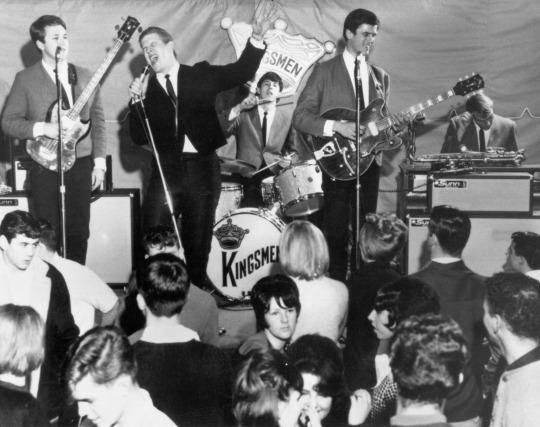'Louie Louie' Singer Jack Ely Dies in Oregon at 71

His son, Sean Ely, confirmed the death Tuesday.
“Because of his religious beliefs, we’re not even sure what (the illness) was,” he said.
Jack Ely was original member of the Kingsmen, a band formed in 1959 that mostly performed cover versions of songs. Four years later, the group recorded “Louie Louie” at a studio in its home city of Portland. According to lore, it cost $36.
The song was written in the mid-1950s by Richard Berry, a Los Angeles musician with roots in doo-wop music. As he recorded it in 1957, the tune had a calypso feel and described a patron telling the barkeep he had to go, to get back to his girl waiting across the sea in Jamaica.
“Louie Louie” has been covered hundreds of times, a three-chord, garage-band classic anybody could play soon after picking up an electric guitar.
Ely and the Kingsmen picked it up along with other Northwest figures such as Rockin’ Robin Roberts and Paul Revere. The Kingsmen’s version was recorded in 1963 and is the definitive version, going from cult classic to rock-and-roll standard. It has inspired more than a thousand cover versions and there’s no reliable estimate for how many times it’s been drunkenly sung at parties.
In addition to the song’s fame, Ely’s incoherent singing also made it one of the most misunderstood. The FBI was so mystified by the hard-to-understand lyrics that it conducted an investigation into whether the song was obscene. They found it to be “unintelligible at any speed.”
Over the years, Ely and other band members attributed the indistinct lyrics to the microphone suspended from the ceiling, forcing Ely to shout up at it. Sean Ely said his father got “quite the kick” out the FBI’s 455-page investigative report. He said his father certainly knew the words, and wasn’t just slurring nonsense.
“Right of his mouth, my father would say: ‘We were initially just going to record the song as an instrumental and at the last minute I decided I’d sing it. It’s all of this is in a 10-by-10 room with one microphone. I’m standing on my tippy toes yelling into the microphone: Louie Louie! Louie Louie! We gotta go!’”
Ely had a falling out with the band shortly after the song was recorded. He later trained horses in Central Oregon and, according to his son, was content with his legacy as a one-hit wonder — a massive one-hit wonder, to be precise.
“He wanted to try on different occasions to pursue other endeavors in the music industry, but I think when it was all done and said he was pretty happy that he did 'Louie Louie.’